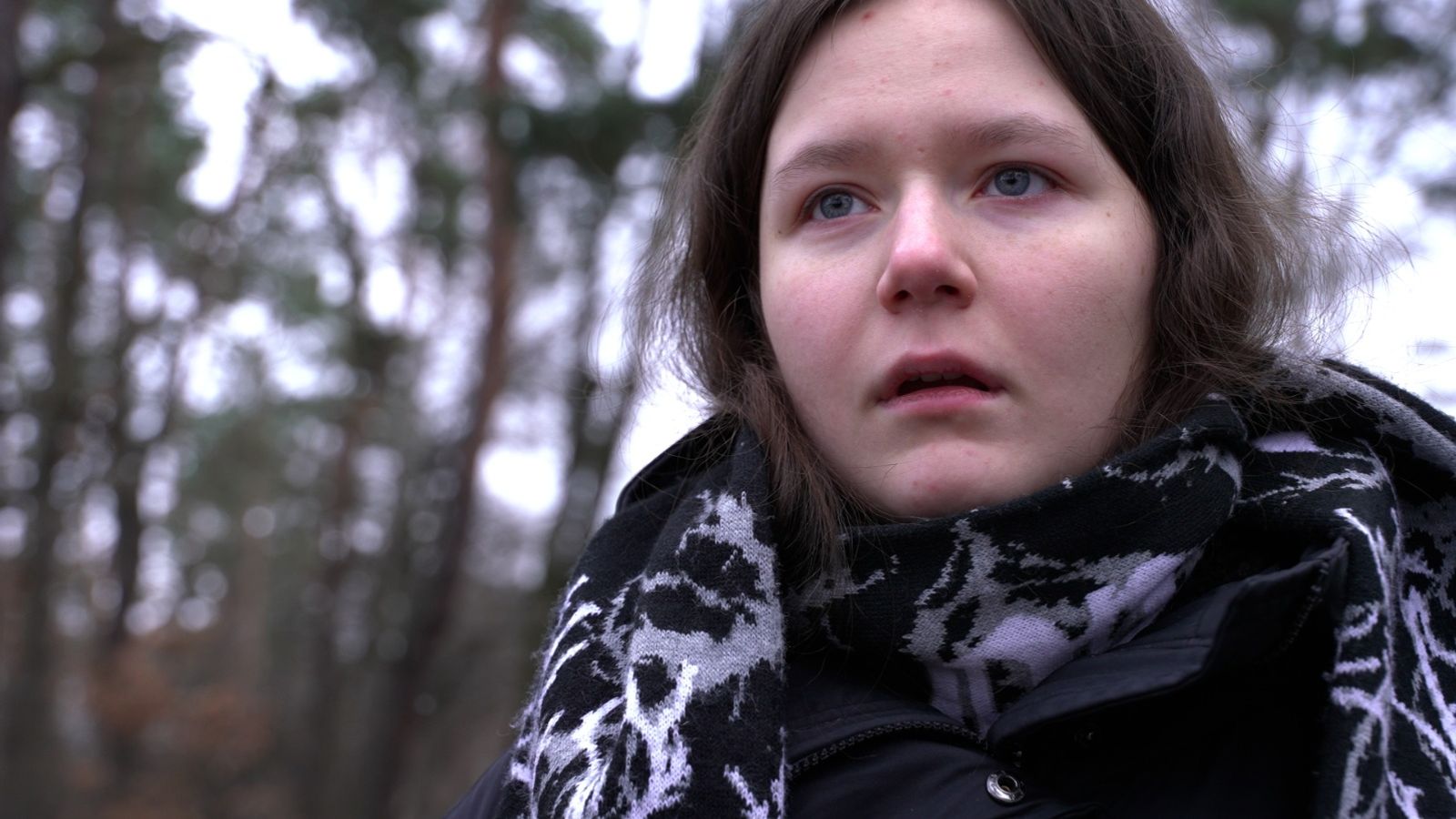In May last year, we stood in the grounds of what had been a mass grave of the residents of Bucha – just a month after the city was liberated from invading Russian forces.
Tetiana Sichkar, then just 20 years old, told us how the occupation had affected her life in the most unimaginable way.
Today, she takes us to the edge of a forest where a war crime devastated her life.
On 24 March last year, Tetiana and her 46-year-old mother, also called Tetiana, made the short trip home from her grandmother’s house – the only place with a working gas stove and a wood fire – through the woods along a railway line.
They wore white tape on their arms to signify to the Russian troops they were civilians. They were not a threat.
Unbeknownst to anyone, in just seven days, Bucha would be free again.
But as the two Tetianas walked that Thursday a loud crack pierced the quiet between the trees.
“Suddenly I heard a very loud gunshot,” the young woman says.
“Then I saw something, maybe blood, maybe a bullet.”
She remembers telling everyone to get down, and falling to the ground. Shaking her mother’s leg, there was no response.
“There was blood everywhere. Her eyes were still open and she was just staring. And I started to scream. I screamed for maybe five minutes.”
Does she know where the shot came from? Tetiana is not sure.
Please use Chrome browser for a more accessible video player
She gestures to her right, through the thickest part of the forest.
“My father believes it was over here, because that is where the Russians were.”
She points to a white building ahead and says calmly: “The sniper was on the second floor there.”
Staring at the upstairs window it is hard to believe Tetiana’s composure while rooted to the spot of such a tragedy.
A short distance away, we are led to the grave of her mother.
She says the funeral arrangements were a blur.
Before the Russians were pushed out of Bucha, they gave her mother’s body back in a stolen car and she was buried first in her garden, before a rush of ceremonies took place at a cemetery when it was safe again.
There are hundreds of graves with less than a foot between them – the site has been the final resting place for so many long before the Russian invasion.
Tetiana, now 21, shows us a picture of her and her mum, the most important woman in her life.
“Of course, I miss her most because she was the closest one to me,” she says – her life must be so hard now. “Life is hard. But it goes on.”
She is studying computer programming from her flat in another part of Bucha, but takes trips into Kyiv to meet the woman who is helping her fight for justice.
Oksana Mykhalevych, 36, is a lawyer who has been prosecuting human rights abuses since the Maidan Uprising in 2014, when 100 activists and 13 police officers were killed during demonstrations against then-president Viktor Yanukovych.
Be the first to get Breaking News
Install the Sky News app for free
Read more on the Ukraine war:
Only a matter of time before Putin is tried for war crimes, US envoy says
Rishi Sunak leads minute’s silence in UK on anniversary of conflict
How many people have lost their lives in Ukraine since the war began?
She has pages of documents neatly sorted in plastic sleeves in a bright red folder, and will help Tetiana liaise with the official war crimes investigators who have been given support from legal systems around the world, including the UK.
Oksana outlines that they want Ukrainian police to stage a reconstruction next month to at least establish exactly where that fatal shot came from – so they can perhaps identify the Russian military unit involved.
Click to subscribe to Ukraine War Diaries wherever you get your podcasts
They will then go after the commanders. “Someone should take responsibility,” she tells us.
Tetiana admits that the Russian military personnel who occupied Bucha may have been sent to another battlefront in the country and may have met their fate at the hands of Ukrainian soldiers.
“It is very likely that that person is already dead. But if that person is still alive, I believe that I will see him in a court. And maybe I’ll ask him what made him do that to my family”.










